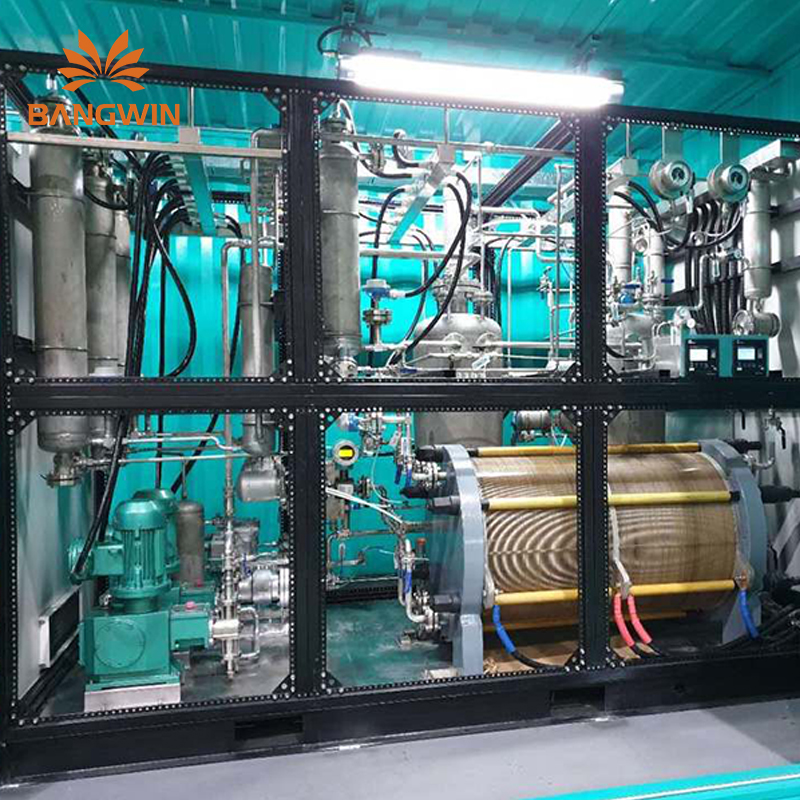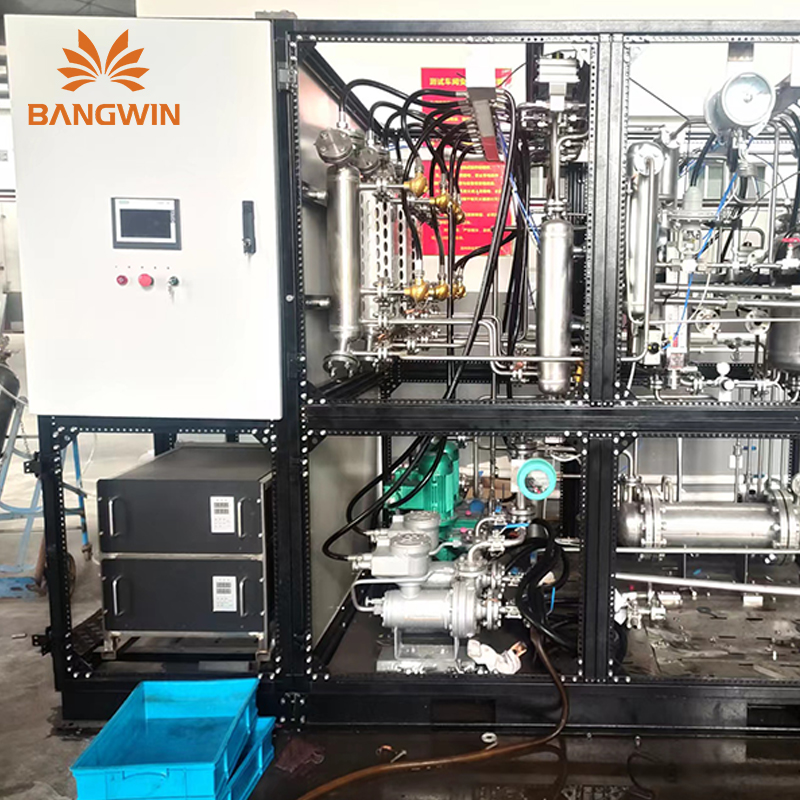-
WhatsApp / Mob : +86 156 5177 2521
-
Email : mrwin@cnbangwin.com
WhatsApp / Mob : +86 156 5177 2521
Email : mrwin@cnbangwin.com
Maintenance and Upkeep of Hydrogen Generators
Oct 12 , 2024Hydrogen generators play a critical role in various industries, such as energy production, manufacturing, and chemical processing. Ensuring their efficient operation requires regular maintenance and careful upkeep. A well-maintained hydrogen generator not only guarantees safe and reliable performance but also extends the equipment’s lifespan, improving operational efficiency and reducing downtime. Below are essential steps for maintaining hydrogen generators:
Regular inspections are fundamental to identifying and addressing potential issues before they become major problems. Key components to inspect include compressors, safety valves, filters, and sensors. During inspections, check for unusual sounds, vibrations, or other signs of wear and tear. Ensure that all parts are functioning correctly and replace any faulty components immediately to avoid disruptions.
Hydrogen generators often use filters to remove impurities and ensure the purity of the produced hydrogen. Over time, these filters can become clogged with dust, oil, and other contaminants, which can compromise hydrogen purity and reduce system efficiency. It is important to replace filters periodically, as recommended by the manufacturer, to maintain optimal performance and ensure the quality of hydrogen output.
Maintaining high hydrogen purity is critical for industries where quality control is essential. Gas purity should be regularly monitored, and sensors used to measure this should be calibrated at scheduled intervals. A sudden drop in purity may indicate contamination or malfunctioning components, which will need immediate investigation and repair.
Hydrogen generators generate substantial heat during operation, so an effective cooling system is essential to prevent overheating. Regularly check the cooling fluid levels and ensure that the cooling mechanism, such as heat exchangers, is free of blockages or corrosion. If the cooling system is not functioning properly, it could lead to reduced performance or damage to the generator.
Compressors and other moving components of hydrogen generators require proper lubrication to function smoothly and prevent excessive wear. Follow the manufacturer’s guidelines on the type of lubricant to use and the schedule for lubrication. Inadequate lubrication can cause friction, leading to increased energy consumption and premature wear of parts.
Safety valves are essential for preventing overpressure situations that can be hazardous, especially with highly flammable gases like hydrogen. Regularly test the safety valves to ensure they are functioning as intended and replace them if any issues are identified.
Many modern hydrogen generators are equipped with control systems that help monitor their performance. To maintain peak performance, ensure that the software and firmware of the generator's control system are up to date. These updates often include improved safety features and diagnostic tools that can help identify potential problems early.
While daily and weekly maintenance can be performed by in-house personnel, annual servicing by certified technicians is highly recommended. Professional servicing ensures that all critical components are thoroughly inspected, cleaned, and repaired if needed. Technicians can also recalibrate sensors and other measuring devices to ensure accurate readings.
Keeping detailed maintenance records is important for tracking the performance and condition of your hydrogen generator. Logs of inspections, part replacements, and servicing schedules can help identify trends and predict when certain components may need attention.
Regular maintenance and proper care of hydrogen generators are essential for ensuring safety, reliability, and cost-effectiveness. By following a systematic maintenance schedule, operators can prevent costly breakdowns, extend the life of their equipment, and maintain high levels of hydrogen purity. For companies relying on hydrogen generation for industrial applications, investing in regular upkeep is a smart strategy that guarantees consistent production and operational efficiency.

